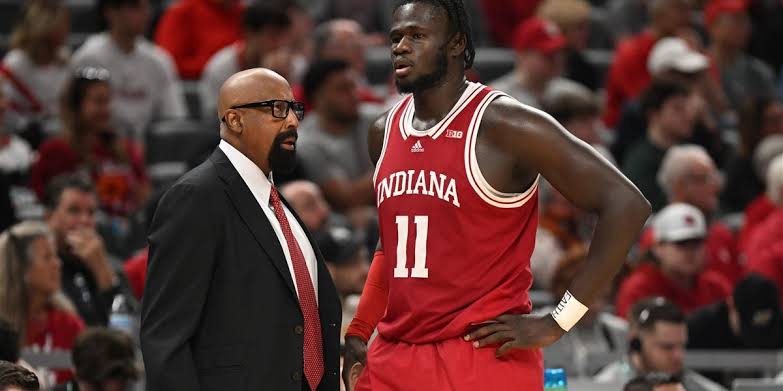**Urgent Outcry: Indiana’s Oumar Ballo Exposes Shocking Death Threats from Fans – ‘Let Us Do Our Job!’ A Call to Action!**
In a striking turn of events, Oumar Ballo, the standout basketball player for the Indiana Hoosiers, has brought to light the alarming issue of death threats received from fans amidst a tumultuous season. His courageous decision to speak out sheds light on the darker side of sports fandom and prompts an essential conversation about the responsibilities of fans and the well-being of athletes.
Ballo’s recent social media post revealed the extent of the vitriol directed towards him and his teammates. “It’s unacceptable,” he stated, expressing shock and dismay at the hostile messages flooding his inbox. The threats, which range from vulgar insults to explicit warnings of harm, have not only affected Ballo personally but have also cast a shadow over the team’s dynamics during a challenging season filled with ups and downs.
The intensity of passion in sports can often blur the lines between healthy competition and toxic behavior. While fans may feel a deep connection to their teams, the pressure to perform and the fear of disappointment should not translate into threats or harassment. Ballo’s impassioned plea for respect and understanding serves as a stark reminder that athletes are human beings first, with lives and emotions that extend beyond the court.
In addressing these threats, Ballo emphasizes the importance of prioritizing mental health in sports. The rigors of performance anxiety can be compounded by external pressures, and when fans resort to intimidation, they exacerbate an already stressful environment. Pushing back against this cycle of toxicity is essential—for the sake of players’ mental health, team morale, and the integrity of sports as a whole.
With voices like Ballo’s rising to meet these challenges, it is crucial for fans to reflect on their behavior and understand the impact of their words. It is imperative that fan culture evolves to promote support and encouragement rather than fear and hostility. As communities rally around their teams, fostering an atmosphere where players can thrive without the threat of violence not only benefits the athletes but enriches the sporting world for everyone.
In a poignant conclusion, Oumar Ballo’s message rings clear: “Let us do our job.” If fans channel their passion towards uplifting their teams, we can create a safer, more positive environment where athletes are celebrated rather than threatened. It’s time for a united front against toxicity in sports, and change begins with every fan.




